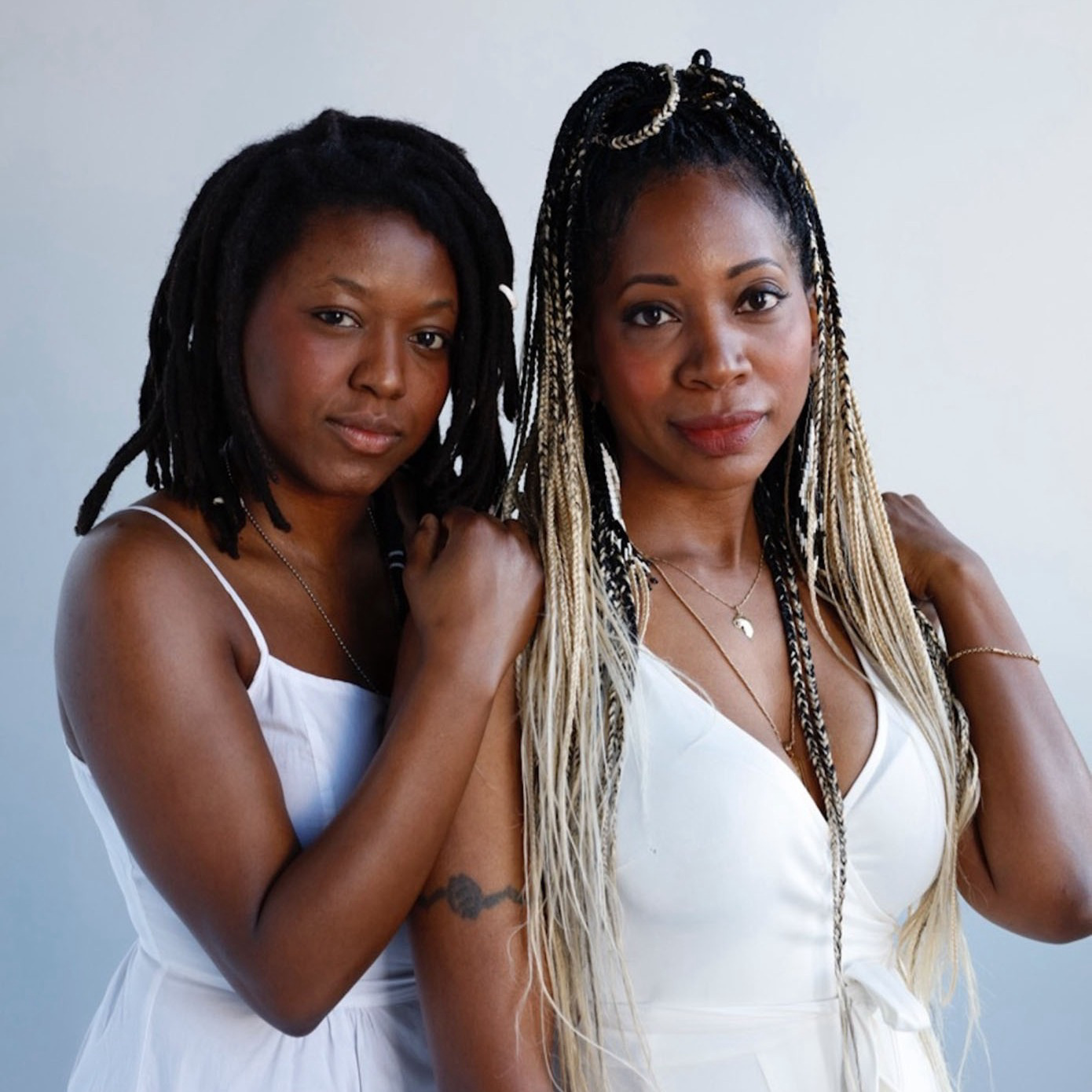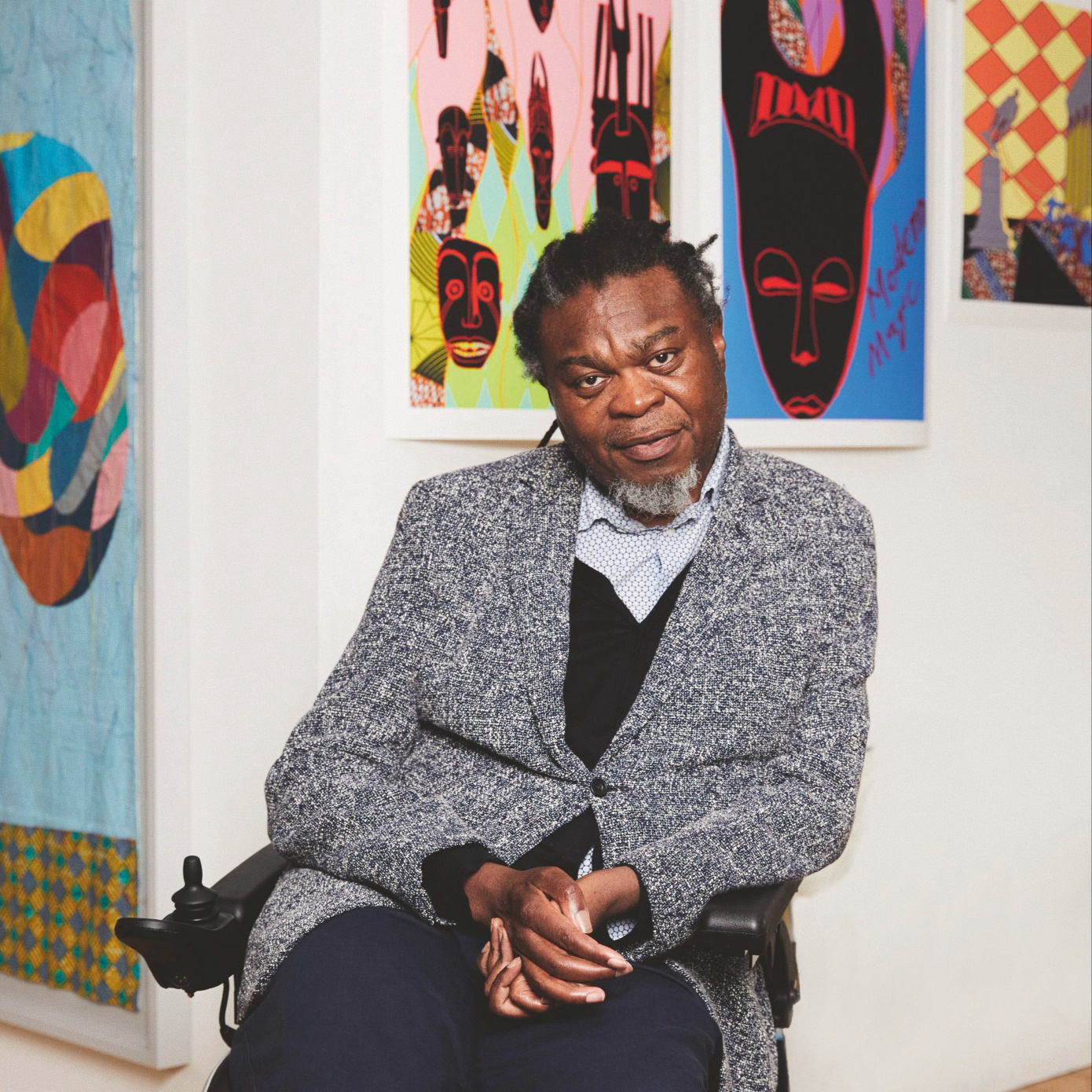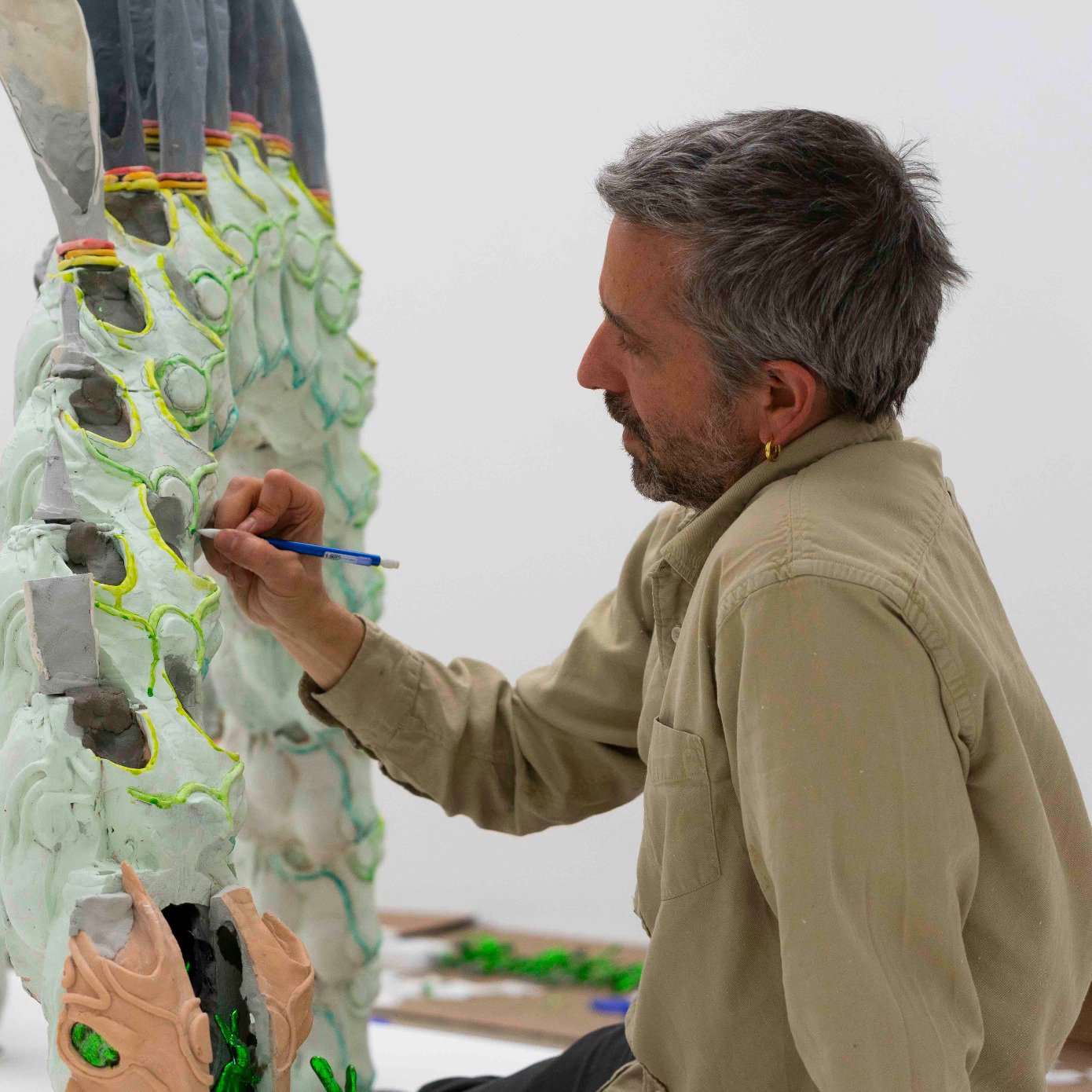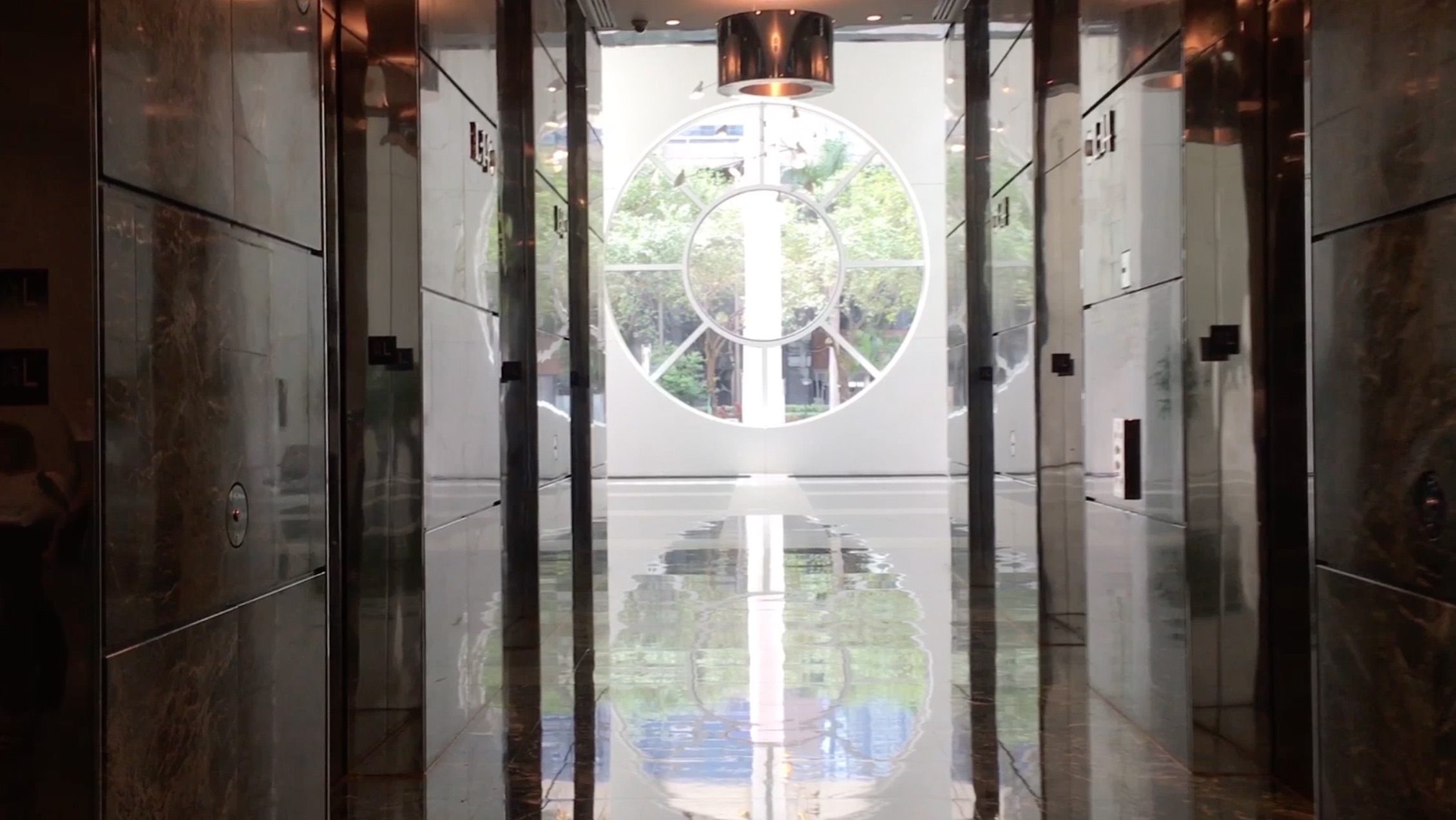
Picture a slow panning shot of a shiny lobby, the first floor of a luxury apartment building. The light is bright, the furniture inoffensive. Every reflective surface has, incidentally, no reflection—no cameraman is mirrored back, as if a massive, omniscient force is doing the work. Elevators look like tombs, gym equipment like vehicles to nowhere—no bodies to occupy them. Outside, the sunset and a jewel-blue pool are painterly and perfect. Robotic announcements, the kind you hear in airports and on trains, start to stutter, repeat themselves, diminish. These empty model homes might as well be digital renderings.
Kitchen with a View—a video by the artist Carolina Fusilier, part of her first Miami solo exhibition of the same name at Locust Projects—presents a dystopian Miami I’ve never imagined: one where the oceans haven’t risen yet, but everybody is gone. When I imagine the city's future, I often see Waterworld; on a bad day, that vision includes only the rich, who were able to protect themselves from whatever disaster. In Kitchen with a View, the lush dwellings feel even more useless this way—empty and abandoned—than if they’d sunk and been inhabited, at least, by barnacles. In Fusilier’s version of the story, this happens eventually: her installation includes the skeleton of a broken-down vehicle, where viewers sit and watch the film on a seashell-encrusted screen. The garage space of Locust Projects is transformed into a domestic room that has been affected by some kind of natural catastrophe.
Fusilier is interested in alienation, in a naturally increasing disconnect, in both domestic spaces and urban environments. Loneliness, though, always recalls its opposite, and so her work also tends to refer to intimacy, and the spaces where bodies ought to be—"human activity shines in its absence," she says. We caught up with the artist ahead of the show to learn more.
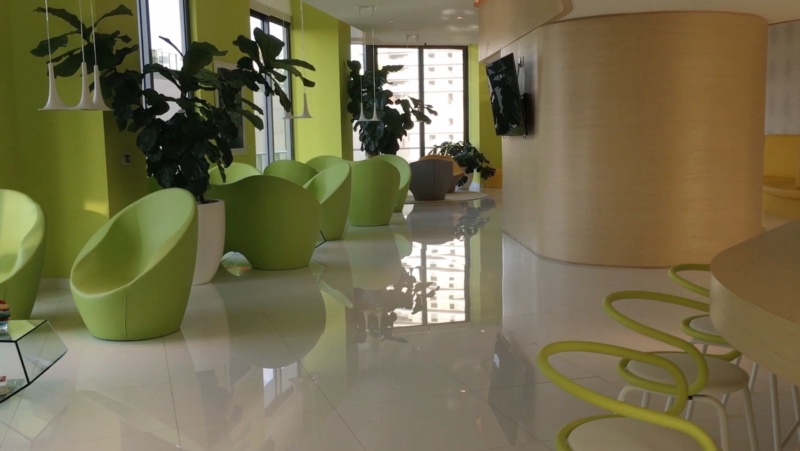
How did this specific project come about? Climate apocalypse is one of the narratives associated with Miami. We're a 'canary in the mine' for sea-level rise).
The first thing I asked myself was: What would be the purpose of taking my work to Miami, and how I could find specific ways to connect with the city? Thinking of Miami as a possible dystopia gave shape to the project, and was the perfect excuse to explore the city from that perspective.
The first impact I felt walking around the neighborhoods close to where I’m staying—Design District, Wynwood—was the amount of new or under-construction towers and condos. I noticed that the real estate business is generating a "ghost town" effect in some areas, because many apartments are purchased as an investment, not as housing. The fiction I was looking for was right there: A neoliberal reality where homes are not made for the life of people anymore, but are part of a huge business.
I decided to film the inside of these uninhabited rooms full of useless furniture, gyms, pools, and increase the volume of the uncanny feeling I experience here. Human activity shines in its absence, and the brand new materials don’t have any trace of time. Everything looks like hyper-real renders for the camera.
Miami is two different kinds of dystopias that could represent two sides of the same coin: the anxiety of real estate developments in the backdrop of apocalyptic predictions in relation to climate change. It's as if there is a kind of denial in the exaggerated way the city is growing—Miami is the third city with the tallest buildings in the country, at a height between 800 and 1000 feet. The video also explores this denial, showing the alienating interior environments—as if this was a hermetic Ballardian reality where the outside appears as a threatening, almost artificial presence.
You removed your own reflection from the shiny surfaces that your camera captures. This reminded me of the efforts taken in films like The Shining to unconsciously distort the perception of the viewer.
It's a big coincidence that you mention Kubrick, because he's one of my biggest influences. The intention in erasing myself in the reflections was to be as extreme as possible with this absence of human presence, including the hand behind the camera. Entirely filmed with a cell phone and a small gimble—steady cam—the movements gave a very affective result, and I didn’t want the reflection of my walking body to contradict this direction.
The video suggests that everything is guided and controlled by intelligent devices that are incorporated into domestic environments. This is a classical topic in the history of science fiction films and novels since the early 1930s. It’s still a fascinating theme now. I remember the feeling I had the first time I saw the shadow of the car of Google Street View, when I saw the trick behind a reality that was supposedly controlled by my mouse. The shadow became a presence that shouldn't be there, an infiltration in my own system. I wanted the video to sustain the illusion of a reality filmed by a phantom hand, in a phantom town, to highlight this desolating landscape.
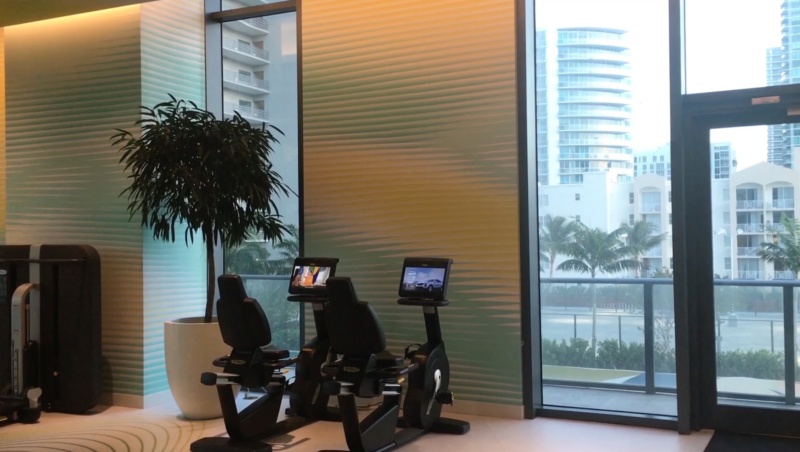
I have conflicting feelings about technology, and the way it seems to engender alienation. It feels hypocritical, outdated, and unnecessary for me to critique it. On the other hand, it's worth examining the changes we're contending with.
It’s true that sustaining a critical position towards technological advances is outdated and unsustainable. But we are developing a high level of disconnection with the use of technology and things that we consume every day. It would be great if the clothes we wear—and every apple we eat, glass of water we drink, phone call we make—came with a tutorial of the resources used to make it come to our lives in such an accessible way. But the magic of this accessibility is moved by invisible threads that come from places that prefer to stay hidden and expand silently. It's convenient for these systems to give me what I need without many explanations. We are like donkeys with carrots, in many situations.
My work approaches this issue not in a "pointing finger," critical way, but rather as a starting point to create fictions and fantasies. I don’t know how complicated engineering can be in the operation of a car or a plumbing system where water is being delivered into my apartment, but I’m constantly in contact with this in a superficial way. This is the tip of an iceberg to be explored from a speculative and transformative perspective. Art is an interesting field to approach this, because it makes visible internal, hidden, or unknown systems. It’s a way to create an autonomous vision about such uncontrollable information. I like to think we deal in similar ways with our consciousness and unconsciousness system.
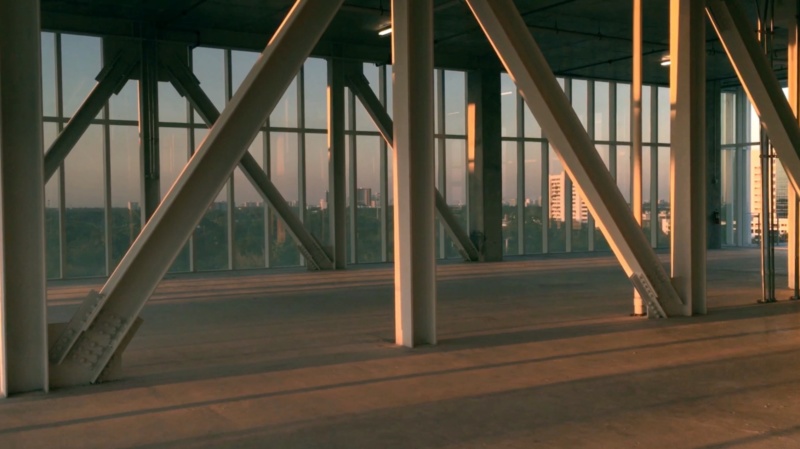
I was reading about your installation, English Fantasy Garden; I thought about how spaces like English gardens come with projected imagery, fantasy. Is the apocalyptic future an aestheticized space, too? Miami was always a place of "fantasy," and now its apocalypse is a romanticized "fantasy" of its own.
The United States has been projecting a cinematographic image on itself and to the world since the beginning of the film and television era. Reality has been so aestheticized that it feels like a fiction itself. Miami—South Beach specifically—is a fantasy that summarizes the current obsession with the '80s and the police narco-fantasy distorted by Netflix and Hollywood. There is a particular feeling of being inside a movie or a novel, and this romanticism generates distance from real things. Even guns, police and military are being aestheticized, and now the apocalypse. You are right to say that the fantasy of dystopia that the world has projected onto Miami has become a touristic attraction. Science fiction has a very important place in the history of political and social events, and always comes at opportune times to exorcise collective anxiety or fear.
I remember when I was a child at the beginning of the '90s, going to the new shopping malls in Buenos Aires. The '90s were the climax of neoliberalism in Argentina. I felt a strange dizziness surrounded by such polished, reflecting surfaces. The shines dazzle, enchant; the reflections distract and distort reality. In Kitchen with a View, the reflective materials are the protagonists. It’s amazing, the effect that these materials have in relation to temporal notions: by losing the horizon with the reflections, the sense of time and space is suspended. The architecture of these shopping malls intentionally creates this symptom of confusion, similar to casinos without windows or clocks. This is a foundation of advertising images, too.
What has been the process like for this show? What are you working on and what are you learning? This was a great experience for me, as I am a more studio-based artist. When I'm not doing this kind of project, I will be painting in a daily routine. It’s the first time I'm doing such a site-specific project with these characteristics, and I also feel a lot of responsibility about being a foreigner and talking about certain topics from my perspective.
My favorite part of the project was wandering through the city in search of the locations. I played a game where I entered buildings until I couldn’t access anymore. It felt like being invisible sometimes. I would go to a parking lot, take the elevator up until the last floor and the doors would open to a huge, empty office with an amazing view. That is mainly how I found the locations of the film.
The project felt like being at the right place in the right time. This is a very unique feeling. A lot of the topics and issues that I'm dealing with in my work are very strong in this city, and I feel it makes a lot of sense to establish a dialogue about this.
Carolina Fusilier: Kitchen With a View is on view at Locust Projects through June 8, 2019.

